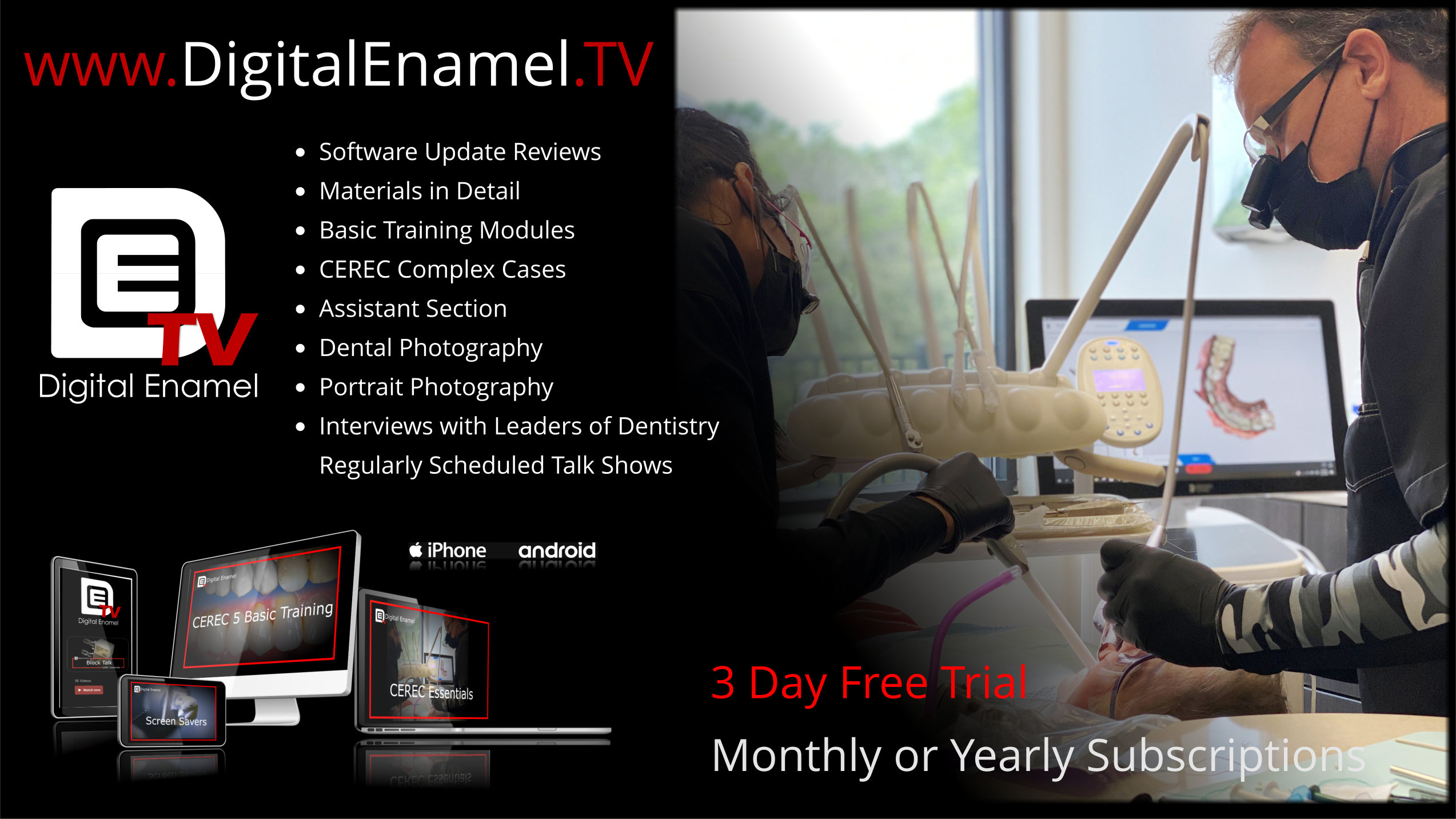Ready, Set, Go: Are We Really On Cruise Control?
In the early 1960s, my best friend’s father, a Cadillac dealer, took us to a special preview of the new models each year. Since he knew I loved technology, even then, Mr. Jones made me feel special by letting me sit in the driver’s seat. Cadillacs always had new bells and whistles other cars didn’t. He would encourage me to try all the new gadgets. One in particular caught my attention: Cruise Control. Mr. Jones explained to me that, on an interstate, the driver could set the car’s speed without attending to the gas pedal, simply by pushing a button. I was amazed at the simplicity of this feature, but I also worried–could the promise of automatically avoiding a speeding ticket not also make a driver pay less attention to his or her surroundings in general?
Similar concerns could apply to how many dentists treat their practices these days. Once we start, we assume our practices will grow uninterrupted until we decide to retire. Sometimes, that’s true, but often we must put constant work into our practices to see growth. But do we put the same amount of time and work in maintaining our mental and physical health for the duration of our career? Studies would suggest not, since many of us deal with unnecessary and unwarranted stress and anxiety when we don’t address or resolve conflicts in our practices and daily lives.
Before a recent dental meeting, it was interesting to walk around and listen to my colleagues discuss how things were going in their lives. Topics included how busy they were, how many new patients they had last month, what they had recently purchased, and most importantly how great they were doing.
Sound familiar? Their comments started me to think, “What do they mean by ‘how great they are doing’?” “In relation to what?” We as dentists often identify our self worth on what we accomplish or obtain instead of who we really are. “Who are we and how do we measure success and obtained a balanced life?”
We serve in a great profession. Dentists are givers, healers, counselors, business managers, artists, negotiators, etc. We take on many roles and assume much responsibility sometime to the detriment of our own wellbeing and saneness.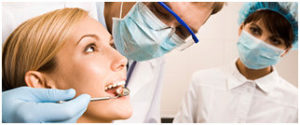
This series will look at common issues and problems we all face and also explore what happens to us when life gets “unbalanced”. Topics that will be addressed are:
- Dentists: Who Are We?
- Personality Types of Dentists (Myers-Briggs Type Indicator)
- Isolation, Depression, Burnout, and Addiction
- CEREC and Galileos: Can Emerging Technologies Help Prevent Burnout?

Dentists: Who Are We?
There are many stereotypes of dentists and dentistry. Some are true and others are false and misleading. In this section, I will analyze what makes us “tick” as a truly compassionate professional that we all aspire to achieve. Many factors help us understand and describe who we are, one of which is our personality type.
According to the American Dental Education Association, common personality traits of successful dentists include:
- Caring and concerned about how the patient feels during the procedures
- Passionate about providing care to those in need
- A leader, excited about the profession of dentistry
- A good communicator
- Artistic
- A detail-oriented person
- Trustworthy
- Easy to talk to and comfortable with close personal interaction
Dentistry often attracts people with certain standards and expectations. These include:
- Compulsive behaviors
- Limited capacity for self-observation
- desire for social approval and status
- unnecessarily high standards of performance
- unrealistic expectations
- isolation driven personality traits
- perfectionism
Dentists display several potentially dysfunctional personality traits, including:
- Anxiety
- Fear
- Narcissism
- Passive-Aggressive Traits
- Avoidance Personalities
- Obsessive-Compulsive Tendencies
- Codependency: Chronic Neglect of Self
Physical ailments and injuries are not foreign to the field of dentistry, including work place injury and dysfunction. The most common musculoskeletal injury in dentistry is lower back pain. Other common injuries include shoulder pain, wrist pain, allergic contact dermatitis, respiratory sensitivity, eye injuries, auditory damage, and nitrous oxide exposure (peripheral neuropathy).
“…The most common musculoskeletal injury in dentistry is lower back pain.”
Common Injuries & Conditions In Dentistry
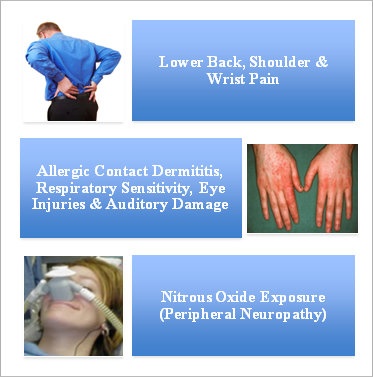
Dentists will often not realize how clinical difficulties, daily external stressors, and life demands drain their energy and focus making one susceptible to mental illness and physical ailments. These stresses can lead one to develop an environment of tension, including one of creating fear of:
Daily Stressors In Practice
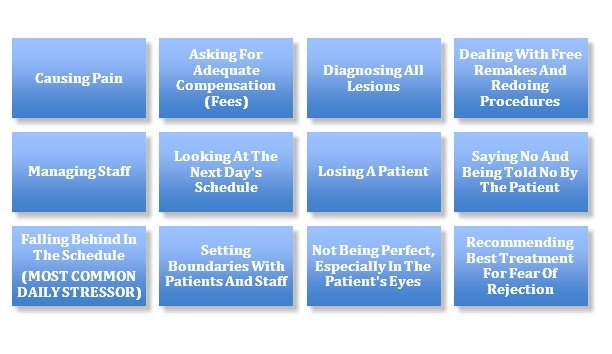
“Dentists will often not realize how clinical difficulties, daily external stressors, and life demands drain their energy and focus making one susceptible to mental illness and physical ailments.”
In dental school, I remember the enormous amount of clinical and academic work that was expected of each of us. At times, we had so much work that we had to prioritize what we did first, second, etc. I knew both were equally important, but often times one would suffer over the other one.
In private practice, we have many areas we deal with in the office, personal (including spiritual), home, and community life. If there is not a balance of these areas, this will create an imbalance that may cause stress and anxiety. I know early in my dental practice I spent too little time on my personal life, including my own mental and physical health. I would encourage and invite each dentist to reflect and evaluate his practice and life and make the necessary changes to improve and balance his life.
These are heavy burdens that take their toil on us over time physically, mentally, and spiritually. So, how do we counter-balance these physical and emotional bombardments?
Self-care and self-awareness are critical in recognizing and implementing change. The following suggestions are time-proven solutions to the common stressors we all face in our dental practices:
Self-Care/Self-Awareness In Regulating Stress
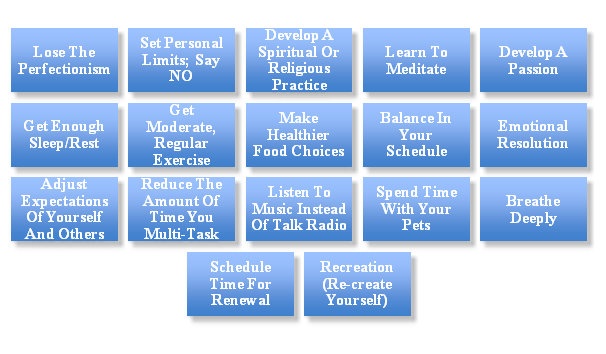
“Self-care and self-awareness are critical in recognizing and implementing change.”
So, who are we? Are we really all about dentistry or are we more? Are we not fathers/mothers, sons/daughters, grandfathers/grandmothers, leaders, volunteers, nurturers, teachers, employers, etc.? Of course, we are all of these things and more!


From the beginning of our training, starting in elementary school, we are told we must do our best and if we do anything we must do it right the first time! These are admirable goals and great advice, but many dentists are incapable of processing this in a balanced, productive way. Why? A large percentage of dentists have diagnosed/undiagnosed Obsessive-Compulsive Disorder (OCD) that can dominate and control how they deal with stressors of life.
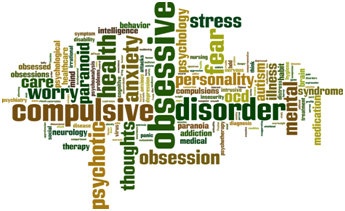
The dentist with Obsessive Compulsive Disorder (http://www.nimh.nih.gov/health/topics/obsessive-compulsive-disorder-ocd/index.shtml#part_145349) often deals with:
- Preoccupation with rules, order, schedules, and lists.
- Perfectionism that interferes with task completion.
- Unreasonable insistence that others do things one way.
- Inability to delegate tasks.
- Absorb anger and other negative emotions.
- Restricted expression of affection and other positive emotions.
- Indecisiveness and inability to complete tasks.
- Rigidity and stubbornness with a need to be right.
This can be extremely exhausting, confusing, and counterproductive to a healthy and balanced life. Rituals and double-checking things and routines can be normal in moderation but when these rituals interfere with normal life functions, they can become paralyzing and detrimental.
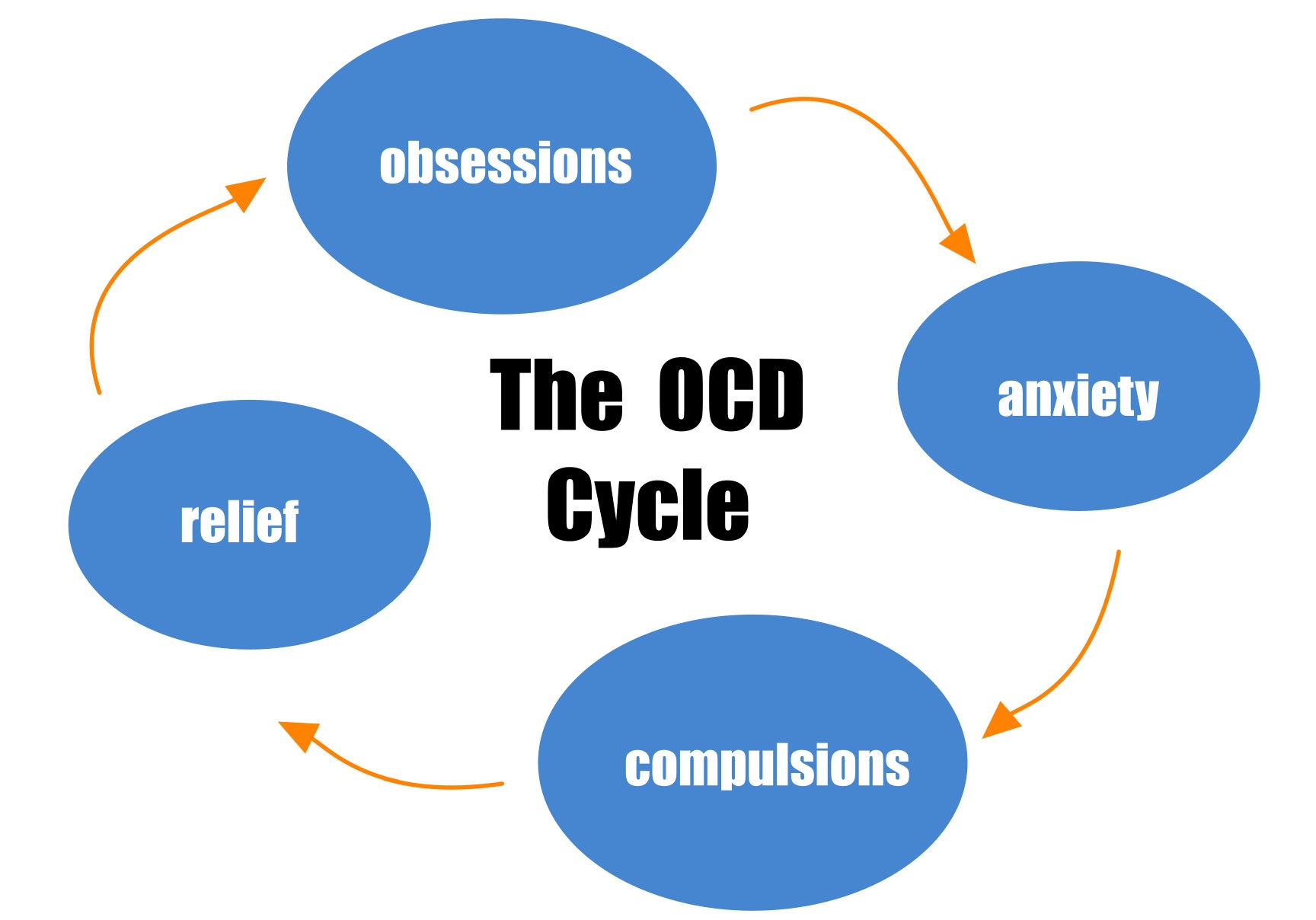
My bet is that if one of my colleagues at the dental meeting that day had a real problem or issue in his life that needed immediate attention, it would have been extremely difficult for him to find a colleague or outlet to express his needs or concerns.

The next section, Personality Types of Dentists (Myers-Briggs Type Indicator), will explore the “anatomy and psyche” of a dentist and look at how we handle stress and more importantly how we utilize the information we have to better our lives.

